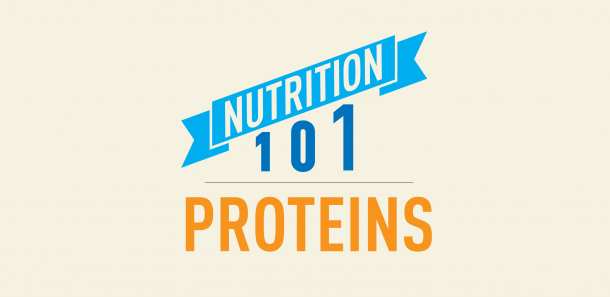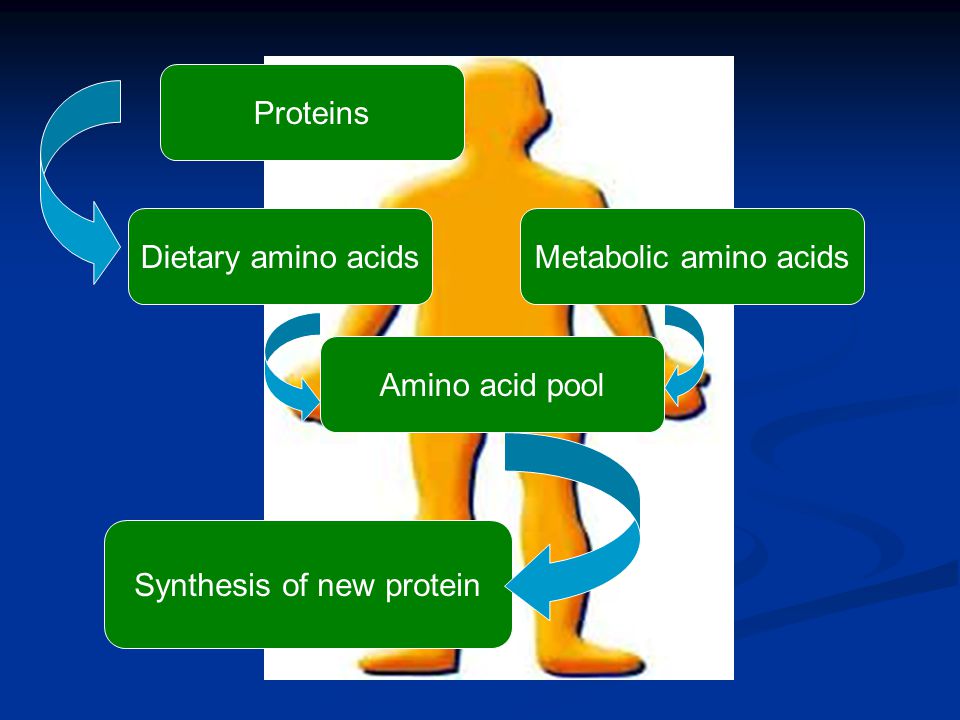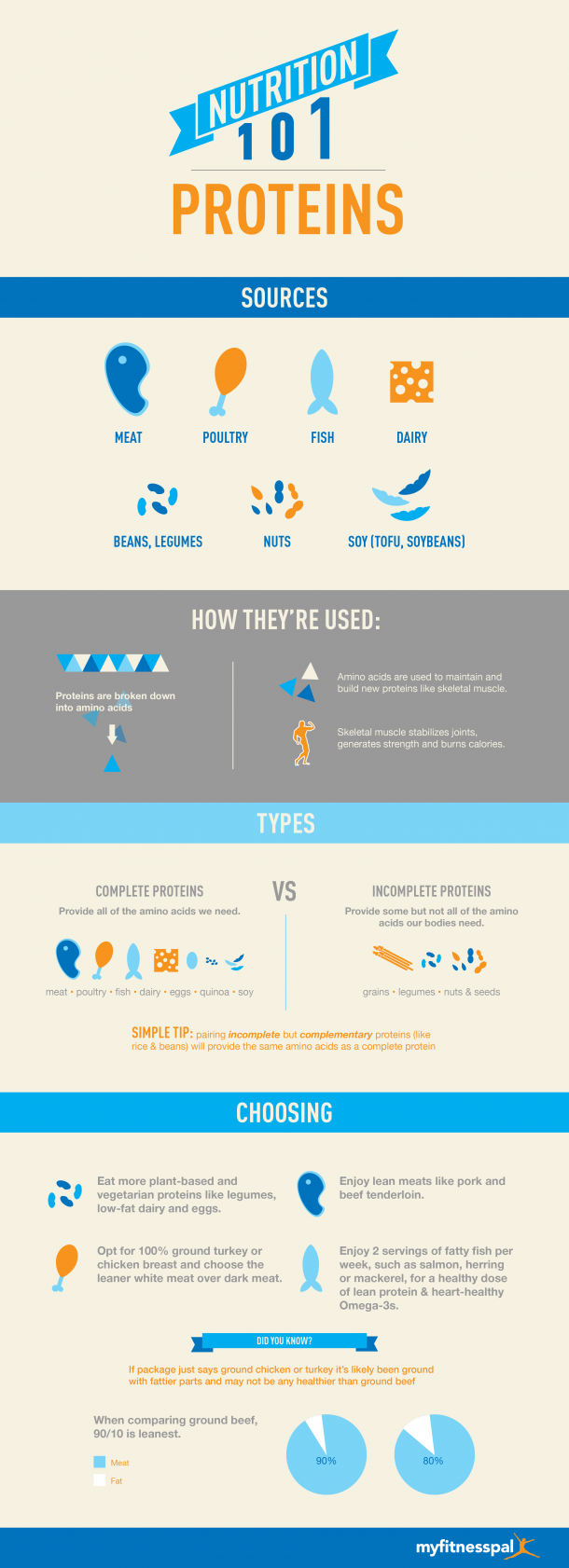
Whether you’re wanting to lose weight, gain muscle, recover from a tough workout, feel more satiated at mealtime or simply maintain good health, eating adequate amounts of healthy sources of protein is important.
What is Protein
Protein is defined as a large and complex molecule consisting of amino acids that are essential for living cells.
It's the amino acids that make up the protein molecules that are the key to their necessity in our diet. Your body cannot directly use the protein molecules that we ingest through food sources, it must first break it down into the basic amino acids. Only then can they be used in the metabolic activities which include energy provision, the creation of structural and functional component of our cells.
In other words...protein plays a pretty important role in how our bodies grow muscle, repair itself and function on a day to day basis.
Amino Acids in Protein
Protein is comprised of a complex chain of amino acids, which can be grouped into 3 categories; essential, nonessential and conditionally essential amino acids
- Nonessential Amino Acids - amino acids that are produced by the body where supplementation is not necessary.
- Essential Amino Acids - amino acids that are not produced by the body and must be supplied through diet/nutrition/supplementation.
- Conditionally Essential Amino Acid - Necessary in special populations without adequate synthesis.
Essential Amino Acids
- Isoleucine (BCAA)
- Leucine (BCAA)
- Lysine
- Methionine
- Phenylalnine
- Threonine
- Tryptophan
- Valine (BCAA)
Nonessential Amino Acids
- Arginine
- Cysteine
- Histidine
- Tyrosine
Conditionally Essential Amino Acids
- Arginine
- Cysteine
- Glycine
- Glutamine
- Histidine
- Proline
- Serine
- Tyrosine
Protein For Muscle Growth
As mentioned above, protein is a key component to muscle protein synthesis, but how does this work?
As the protein your ingest is broken down into the amino acids above, a portion of those amino acids will end up in the amino acid pool, which is a reserve of amino acids found in the blood stream. Once in the amino acid pool, your body will release these amino acids to areas that require it for repair or growth, muscle tissue being one of these areas. However, not every amino acid that is obtained from protein sources will end up in the amino acid pool.
For every 100 grams of amino acids taken in, about 20 grams will be release into systemic circulation. Of that 20 grams, roughly 14 will be BCAA's and end up in the amino acid pool. Knowing this, you can now being to see that important of ensuring that you maintain that recommended amount of protein intake on a daily basis.
Here is a image that provides a visual of the path of protein as it is ingested to it's eventual synthesis of new protein (ideally, in the form of muscle tissue).

How Much Protein Do I Need?
Minimum Protein Intake
The recommended protein intake for a sedentary, generally healthy adult is 0.8 grams of protein per kg of body mass. This equates to roughly 55 grams of protein per day for a 150 lb individual.
Keep in mind this is a minimum level of protein intake in order to prevent protein deficiency.
Recommended Protein Intake
Many experts agree that a higher amount of protein intake in necessary to sustain immune function, metabolism, satiety, weight management and performance. With this in mind, a recommended amount of protein should be closer to 1 - 1.25 grams of protein per pound of bodyweight. Using the same example from above; a 150 lb individual would require 150-187 grams of protein on a daily basis.
Protein Sources
There are a number of ways to get your daily recommended amount of protein. I have created a list for that breaks down some source for protein by quality. This list is by no means inclusive of every form of protein that is available, but it does cover the most commonly used in normal diet/nutrition plans.
- Good
- Better
- Plain Greek yogurt
- Cottage cheese
- Eggs
- Beef
- Best
- Salmon
- Tuna
- Chicken breast
- Turkey breast
Want some additional ideas on how/where to get quality protein? Check out 33 Different Ways to 25 Grams of Protein.
Protein - An Infographic
In addition to helping us feel satiated after a meal, dietary protein plays a critical role in every cell–building and maintaining healthy tissues and producing important enzymes and hormones that help regulate metabolism, growth and many other things. Getting enough protein is important so the body can perform all of these functions on a daily basis. But remember, just like carbs and fat, if consumed in excess, protein can just as easily be converted into and stored as fat.
Recap
- Protein is made up of amino acids, the basic building blocks for your body's biological functions.
- Some amino acids are produced by the body (non-essential), but the majority (essential) must come from our diet/nutrition or supplementation.
- Protein and the amino acids within play an important role in the muscle building process.
- Our bodies require a minimum amount of protein (0.8 grams of protein per kg of body mass) in order to efficiently perform on a daily basis.
- Higher levels of protein intake is required (1 - 1.25 grams of protein per pound of body weight) when higher levels of activity and exercises are involved.
- The majority of protein ingested should come from high quality food sources.
- There are 4 calories in every gram of protein.
Ready to Learn More?
If you want to learn more about the fundamentals of nutrition, check out the following 7-part series that I have created!
Hey, I'm Chris Coburn and I am a certified Precision Nutrition Level 1 Coach! Each week I will send you an email that will cover one easily digestible, essential building block on the fundamentals of nutrition.
The best part? They’re totally free.
To check out the free series, just click the button below.

